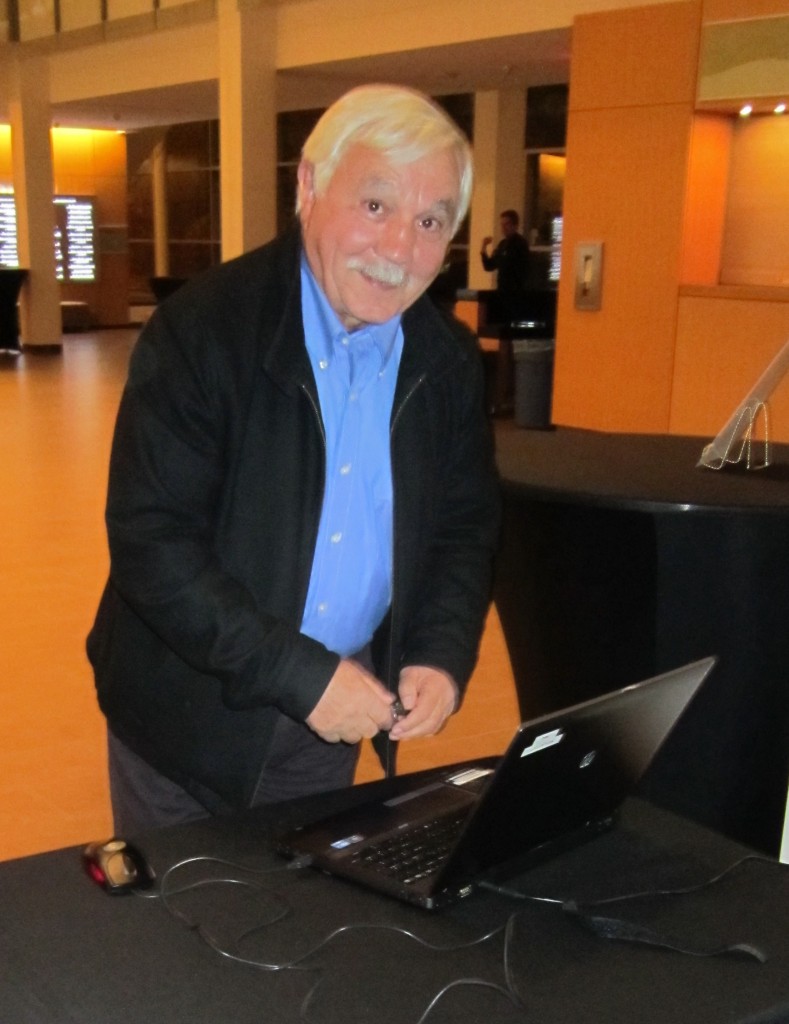By Pepper Parr
BURLINGTON, ON. City Hall is getting into electronic public opinion polling. They are going to create a panel of 5,000 citizens who will be asked a series of questions from time to time. Citizens will be able to respond from their cell phone, tablets, lap tops and desk tops. The only media you won’t be able to use is Morse code. This service, expected to roll out before the end of the year is going to be called Insight Burlington.
It’s an approach that is certainly worth looking at – what are the possible downsides to this?
At the public meeting where the plans were passed along to the public 50+ people made it clear they didn’t want this service run by the politicians.
They wanted to know who would decide what the questions should be? How much of the data would the public actually get to see and who would be accountable for what gets done with both the inputs and the outputs. Mark Twain often used a phrase thought to have been coined by former British Prime Minister Benjamin Disraeli: “There are three kinds of lies: lies, damned lies, and statistics.”
That pretty well sums up the public perception of survey information which is something city hall is going to have to deal with.
Are surveys an example of a city council governing by polls? Do surveys become mini-referendums that result in policy? Where does political leadership come into play? If one went by the letters to the editor in a local newspaper when the pier was going through a very difficult patch (mostly the result of terrible project management on the part of the city – but that’s another story) the structure would have been torn down. Go out on the pier at almost any time of day and ask people if they think the project should have been scrapped?
A collection of opinions is a snapshot of where thinking is at a particular moment and depends heavily on a public being fully informed. Hard to call Burlington a fully informed city – the Shape Burlington report that came out just over three years ago identified a significant “information deficit” that no one would claim has been anywhere near resolved.

Julian Marquis was heavily involved in the development of the Citizen Engagement Charter and registered to be on of the 5,000 people who will be part of the Insight Burlington initiative.
When the public gets told that the city did not live up to its usual high standard of communications during the debate on the sale of the Water Street properties one is tempted to ask – and why was that? The question was not asked.
The flow of information and the balance that flow is given is critical. The city spends close to $1 million on communications when you include their advertising, salaries and printing costs. That allows the city to tell its story in the way it chooses to tell the story.
Will City Hall have the same tight grip on this electronic medium? Is there room here for some civilian oversight? Could well be.
About a year ago the city could not handle the flak that was coming out of the very differing opinions on historical homes and the way they were being put on registries with some property owners thinking their homes would be designated as historical and see a diminished value placed on them. The city failed miserably to educate the public but did have the foresight to re-organize the Heritage Advisory Committee and tasked it with cleaning up the mess.
And clean it up they did. That Advisory Committee did such a tremendous job that the members of city council actually gave them a standing ovation and a significant budget to complete the job which is going to include creating a web site that will tell Burlington’s stories and how they relate to historical properties.
It is clear that wisely constituted advisory committee can work.
Because there is some well-founded concern over who is going to determine what questions get asked with the electronic polling panel does it not makes solid sense for there to be some citizen oversight right from the beginning?
The city has an Engagement Charter that is marooned somewhere in city hall where it is now just a document gathering dust. It needs to be brought out and given a little exercise and made live and relevant.
So why not create an Advisory Committee that would be responsible for the intelligent use of the Engagement Charter and for citizen over site of the Insight Burlington operation. You can bet that the council members will look for ways to ask questions in such a way that they get the answers they want to approve the actions they want to take. They do it now during citizen delegations where there is just the one citizen standing before Council. Imagine what they will do when they say there are 5,000 people who see it their way?
We can think of at least one person on Council who would jump at this idea and two of the potential candidates in the municipal election who would see merit in this. They might even make it part of their platform.



















Sounds like a good idea, but the devil is in the details.
What is the business case for putting this forward? What other municipalities have done this? What are their lessons learned?
Who are these 5,000 people? What are the demographics? Are there more people on ‘the list’ south of the QEW or north of the QEW? Or from the east end, or the west end? Who gets to see the results? Will we be able to see the results by demographic breakdown? What weight will be given to the poll vs people who show up at Council meetings?
If an issue is important to you, then contact your Councillor to make sure your voice is heard.
Electronic polling won’t add any value. It is another box to be checked on the ‘to do’ list from a consultant’s report. Just like the Strategic Plan. It looks good to have one, and we should have one to guide decision making, but it appears it is rarely used.
On the surface, this seems like a good idea; ask 5,000 good folks to opine on issues of the day. But frankly I have have very some large reservations about this idea and think it’s actually a very large step backwards. Having participated with Shaping Burlington I’ve been frustrated that the Engagement Charter seems to have been mired in the Bureaucratic Goo that is Burlie City Hall , but this so called Insight Burlington is the wrong way to go.
First this smacks of elitism, however well intentioned the 5,000 may be they are not accountable to the citizens at large. Do we not pay city councillors to represent their constituents? If we accept this idea then we should take the next step & just let city staff run everything & have the 5,000 accept or reject what is proposed.
Second, who sets the questions? Having had participated in my share of so called citizen engagement exercises the overwhelming feeling one is left with afterwards is that city staff have made a decision, and have gamed the process to produce an already agreed upon outcome. How would this be any different? One just has to look at the Tree By Law debacle to see evidence that city staff proposed inaction over action as a direct result of a process designed to produce the given staff recommendation.
Third, Who watches the participants? Wikipedia has just discovered that some of their articles have be infected by paid PR firms to improve various firm’s position on the Wikipedia website. If it can happen to Wikipedia, it could happen at city hall if an issue had enough dollars at stake; and we would be no wiser.
Fourth, this sounds like an electronic focus group. The focus group is a failed concept that gave us the Saturn, New Coke, and John Sculley who all but bankrupted Apple.
Lastly this strikes me a lazy. If our city councillors are too busy with their other outside business interests to find out what their constituents’ needs are, perhaps we need different councillors who will focus on the job I thought we we paying them to do.
I agree James. Councillors are paid to do a job. I know they all put in a herculean effort. But will this help them do their job better? Or will it just be white noise?
If we go to this polling, does that mean every issue in Burlington is basically a referendum item that is decided by these 5,000?
Where do we get ALL sides of the item that is being polled? What I consider to be ‘common sense’ may be ‘pie in the sky’ for others. And trying to portray a complex issue in 30 seconds or less leads to poor decision making.
Leading by consensus is not the way to go. Just look at the mess that is California over the past 25 years. Referendums galore resulting in public gridlock. No new revenue streams, but a huge surge in demand for services.